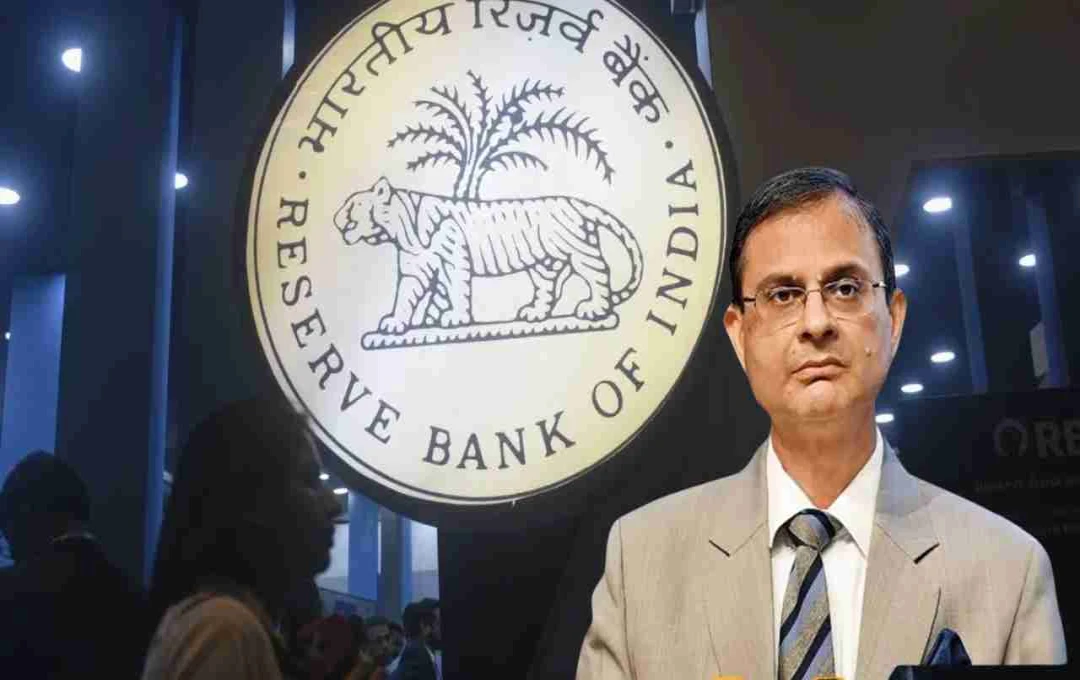The RBI has announced a record dividend of ₹2.70 lakh crore to the Indian government. This amount will help address the nation's economic challenges, tariff disputes, and defense requirements.
RBI: The Reserve Bank of India (RBI) has declared a record dividend for the fiscal year 2024-25, allocating ₹2.69 lakh crore to the central government. This represents a substantial 27.4 percent increase compared to the previous year (2023-24) and is the largest dividend ever, significantly bolstering government finances and improving the nation's economic standing. Let's analyze the implications and impact of this decision.
Why did the RBI give such a large dividend to the government?
This dividend provides substantial relief to the government. In the previous fiscal year (2023-24), the RBI disbursed ₹2.1 lakh crore. Before that, in 2022-23, the amount was ₹87,416 crore. This consistent increase in the RBI's dividend reflects the nation's economic progress and the bank's profitability.
What are the sources of the RBI's earnings?
The RBI's substantial funds stem from various sources. A major contributor is its foreign currency assets (FCA). Approximately 70 percent of the RBI's balance sheet comprises FCA, generating significant returns from foreign exchange investments. Additionally, the RBI earns interest on government bonds, accounting for about 20 percent of its income.
The RBI holds dollar reserves and benefits from favorable returns when the dollar appreciates. Furthermore, it lends to commercial banks, earning interest income. Revaluation of foreign assets, including gold, also boosts the RBI's income. Selling gold at higher prices yields substantial profits.
How will the government utilize this record dividend?
This substantial inflow will aid the government in strengthening the national economy and advancing developmental initiatives. Particularly amidst US-imposed tariffs and escalating tensions with Pakistan (defense challenges), these funds will be crucial for bolstering defense spending and addressing these challenges.
The government can utilize this amount to reduce its debt, thereby lessening economic pressure. Furthermore, this will boost consumption and potentially lower EMIs, offering relief to the general public. The share market will also benefit, and liquidity in the banking sector will increase.

RBI increases its contingency risk buffer
The RBI has raised its Contingency Risk Buffer (CRB) to 7.50 percent for the fiscal year 2024-25. This was decided during the central board's meeting on May 15, 2025. This buffer ensures the RBI has sufficient funds to manage future economic crises, maintaining stability within the banking system.
What impact will this RBI decision have on India's economy?
This record dividend will empower the government economically. Amidst ongoing tariff disputes with the US and rising tensions with Pakistan, these funds will be a significant asset. It will provide necessary funds for increasing defense expenditure, balancing foreign trade, and investing in economic reforms.
Moreover, increased government resources will accelerate development projects, reduce unemployment, and improve economic growth rates. Increased liquidity in the banking sector could lead to improved interest rates, making borrowing cheaper. Collectively, these factors will strengthen the nation's economic position.
How is the RBI's dividend determined?
At the end of each fiscal year, the RBI accounts for its income and expenses. The net profit remaining is termed "surplus." A portion of this surplus is allocated as a dividend to the government. The dividend amount is determined based on the RBI's Economic Capital Framework (ECF).
The RBI's central board of directors and the Ministry of Finance approve this amount. This process is transparent and adheres to regulations, protecting the interests of both the government and the RBI.
How will the RBI's dividend benefit the general public?
The RBI's record dividend will directly impact the general public. Increased government funds will allow for greater investment in social programs and development projects. This will create new employment opportunities and increase people's income.
Additionally, lower interest rates will make it easier to obtain loans for home purchases, vehicles, or other significant expenses. Increased liquidity in the banking sector will positively influence interest rates.









